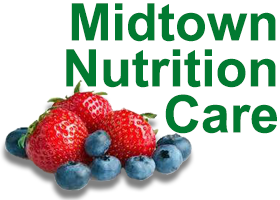HEALTHY DIET FOR SENIORS
Eating a well-balanced diet is important at every age, and perhaps more so for people over 50. Eating healthy can improve immune function, increase energy levels, and boost mental sharpness. A healthy diet for seniors should focus on eating whole, fresh, tasty foods that are minimally processed.
FRUITS AND VEGETABLES–Aim for 2-3 servings of each. Go for variety and choose colorful fruits and vegetables. Berries, cherries, and pomegranates are good sources of vitamin C and antioxidants, and are anti-inflammatory. Dark leafy greens are a great source of antioxidants and iron. Choose kale, spinach and broccoli, along with other colorful vegetables like carrots, sweet potatoes, and peppers.
CALCIUM–If you are over 50 you need 1000 mg/day for men or 1200 mg/day for women. Calcium is key for keeping our bones and teeth strong as we age. Calcium plays a role in muscle contractions, regulating heart rhythm and blood clotting. Sources include cow milk, soy milk, fortified nondairy milks, kefir, yogurt, cheese, cottage cheese, leafy greens, cruciferous vegetables, white beans, soybeans, salmon, sardines, trout, and calcium-fortified orange juice.
HEALTHY FATS–Focus on mono and polyunsaturated fats which are good sources of omega-3’s. These fats are heart healthy, can lower triglycerides and reduce inflammation. Choose olive oil, sesame oil, avocados, olives, nuts/nut butters, sunflower seeds, pumpkin seeds, flax seeds, chia seeds, and fatty fish (salmon, tuna, sardines, cod, mackerel, trout).
FIBER–Fiber has multiple benefits. Fiber expands in the stomach and keeps us fuller longer, slows down the absorption of sugar, binds with fats in foods, lowers LDL cholesterol, and promotes regular bowel movements. Women over 50 should eat 21 grams daily and men should eat 30 grams daily. Choose whole grain breads and whole grain cereals, oatmeal, brown rice, wheat pastas, beans, lentils, edamame, potato with skin, fruits with skin, vegetables, flax seeds, and chia seeds.
WATER–It is important to stay well hydrated as we get older, especially since our sense of thirst tends to diminish. Adequate fluid intake is important for regulating body temperature, delivering nutrients throughout the body, digesting foods, improving thinking, and regulating bowels. You should drink a total of eight 8-oz glasses of fluid every day.
VITAMIN B12–Vitamin B12 helps keep our blood and nerve cells healthy. However, absorption of Vitamin B12 diminishes as we age. This is mostly due to a decrease in stomach acids and enzymes needed to process Vitamin B12. You can find Vitamin B12 in meat, poultry, fish, cheese, eggs, fortified cereals, and nutritional yeast.
